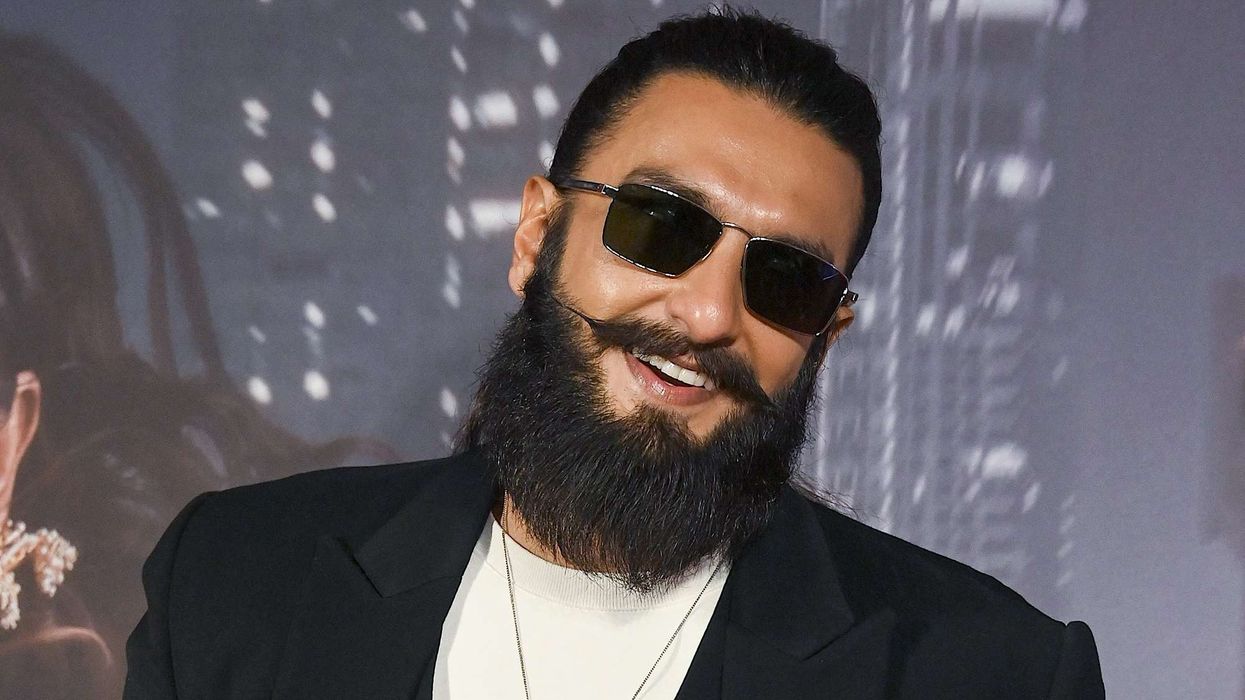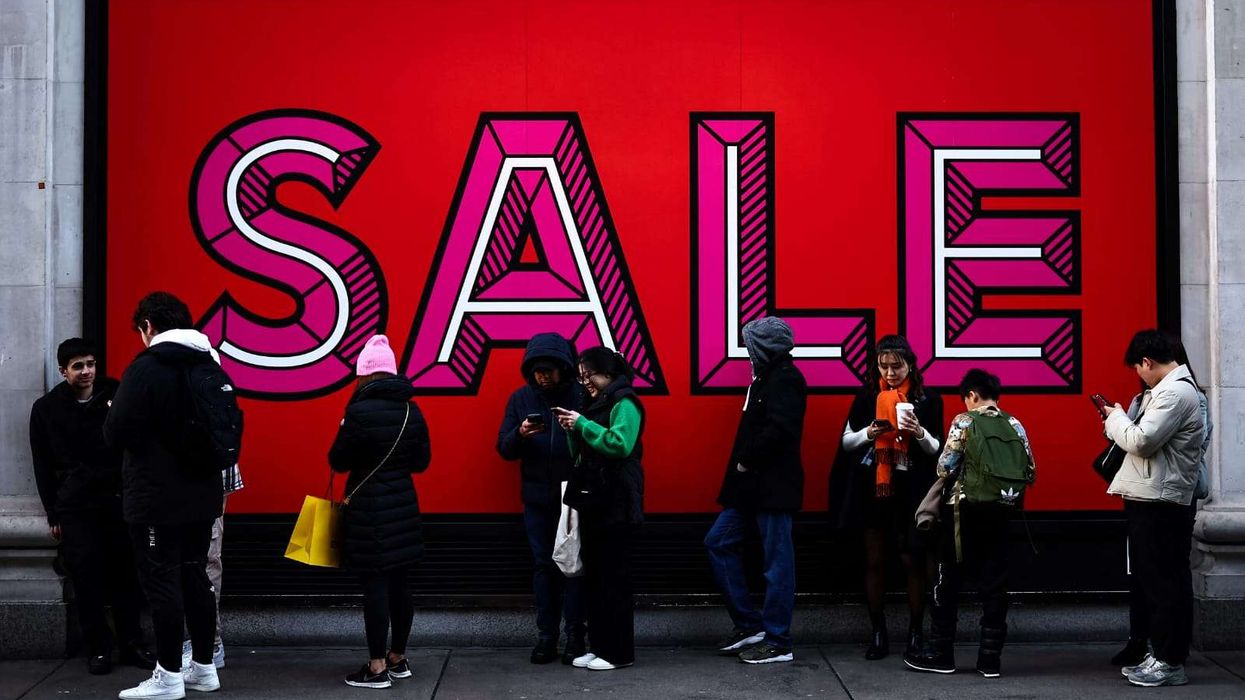JUST days after he spoke to the GG2 Power List, Bal Samra dropped a bombshell. After 30 years in the BBC, the most recent being as its group commercial director, and the most senior Asian, he was leaving the corporation.
His boss, the new director-general, Tim Davie, said, “Bal has made a significant mark on our industry and on the BBC, connecting creativity to business opportunities for the benefit of audiences. His commercial acumen and skill are widely-recognised and respected across the broadcasting industry. We wish Bal all the very best with his future and thank him for his outstanding contribution to the BBC.”
That is understating it a little. The GG2 Power List caught up with Samra a few days before the surprise announcement. “It’s time for my next big adventure,” he tells us.
“Look, I don’t want to go into details, but I’ve a number of ideas and I want to develop them in the coming months. I’ve had an amazing time at the BBC, my colleagues, and my various teams, have been magnificent.”
Despite the pandemic, Samra has been busy and successful in the past year. He led the team which launched Britbox, a subscription platform which shows the best dramas and soaps the two companies have made and are making. Favourites such as Eastenders, Coronation Street, Dr Who and Downton Abbey.
Two rival broadcasters, ITV and the BBC, are working together in a commercial venture.
“Part of Britbox and its fundamental purposes are to have a commercial proposition that is full of British content, and that’s so important, in my view, for the whole ecosystem of the UK public service broadcasting. Without that, we’re going to have a diminishing focus on British talent, British producers, British content, so it’s a very big partnership.
“Last year I talked about it and said that this is the sort of area that we need to invest in. We’ve launched it in the UK. In fact, we’re now launching it globally and it’ll be in 25 countries.
So, we have a brand that people recognise from the BBC and ITV. It actually had, by the way, all of the PSBs [public service broadcasters] on it. It has Channel 4’s content, and it has Channel 5’s content as well. It’s about the best of British.”
This is a massive deal which needed commercial acuity. And to understand Samra, you need to go back to his culture, and his definitely proud south Asian roots.
“We’re all brought up in different ways, and my parents were immigrants who came into this country, and we had to hustle. My father couldn’t speak English, so there’s all of that kind of culture, and that kind of bartering and trading culture.
“The combination of my experience, my background, and commercial negotiations or these discussions are a discourse between two people, and I like people.”
Speak to anyone in the BBC, or outside, for that matter, Samra is not your “BBC suit”, the often-disparaging term for senior executives in the corporation. The reason is simple.
“My family were in their own business. I knew I wasn’t going to go into that business, so I decided to go down my own path, just finishing my business diploma, finishing college, I went straight into the workforce. I went into a couple of temping jobs. I then got into Unilever on a trainee ship there, and I hustled my way through.
“I’ve had a lot of help on the way from mentors because I didn’t know how the system worked. I didn’t really conform to it much early. I just sort of had those basic ethics and the desire to learn. When somebody would say, did anyone want to do overtime, nobody else wanted to do it, so I did it, and it was there and something interesting.”
To anyone who has worked for the BBC, that statement is rather astonishing. Many people at the BBC will have first, if not second, degrees, and coming down from Oxbridge will help rather than hinder your progress. The BBC may be going through a torrid time, with allegations of racism and bullying, but Samra says it is something he has not experienced. Indeed, he remains grateful to those who mentored him, allowing him to navigate his way through the ranks.
“That’s actually interesting,” says Samra, whose immigrant parents set up a business in the rag trade, moving to Essex as the first nonwhite family in Tilbury Docks. “[At] the BBC, I’ve had informal type of mentors. Mark Thompson [former director-general], he’s the guy that sent me to Wharton Business School.”
Samra speaks openly about the racism he faced at school and how he fought his abusers.
It was a Welsh teacher who explained to him that if he continued to fight, he would be expelled, something which would have brought shame on his parents.
Today, for the outgoing BBC group commercial director, mentoring remains important. His eyes light up, and he becomes even more animated and passionate when he speaks about what he does outside the BBC. He is a trustee of the Ormiston Academies Trust, a not-forprofit, and importantly, it runs his old school.
Further, he is fiercely proud to chair the StoryFutures Academy, the UK’s National Centre for Immersive Storytelling, run by the National Film and Television School and Royal Holloway, University of London. Samra is also proud of nurturing talent, harnessing and championing diversity.
In an email a few hours after the GG2 Power List interview, he wrote, “Here’s that report I was talking about – just published. As chair, I was determined to ensure we had diversity just built into the work of the executive, right up front. Have a skim, you’ll see after two years we’re ahead of targets.”
You sense the person who beat off racists during his school days should not be underestimated. Once he leaves the BBC in 2021, look out for the next Samra venture, Samra negotiation and, of course, the inevitable Samra triumph.






